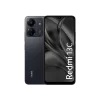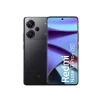After a lot of planning, promises and pushback from civic organisations the City of Harare eventually started installing prepaid water meters in parts of the city.
These new terminals are meant to provide residents with a prepaid water system that provides water on a pay-per-use basis. According to the City of Harare, the system will have a feature that allows defaulting residents to get some water on credit.
So far 2,000 homes in six suburbs have been identified for the pilot implementation of the meters and residents who requested for the service are the ones being offered the terminals. The City of Harare has been regularly sharing some of the progress with this.
Judging from the way the City Council has been struggling with residents who default on payments the municipality is the main beneficiary of this system. Revenue collection will become easier, something that the city of Harare and every other town toying with prepaid water already realised.
However, one other enormous benefit will be the management of water consumption and the city’s water resources. Harare has struggled with this for decades, and while prepaid services compel residents to manage water, they also play the important role of helping the city keep track of faults in water delivery.
While the smart meters for Harare haven’t been opened up to third-party integration which can allow for the inclusion of water management applications, there will be scope for that if this is successfully introduced in every home.
Standard smart meters are designed to monitor points of leakage in a specific area’s delivery system and this is on the municipality’s end. However, the functionality can also be opened to localised area and individual residents water management.
It’s pretty ambitious at this point, especially seeing that the ZESA prepaid electricity system didn’t come with the same option. However, with just 2,000 homes experiencing prepaid water, now would probably be the time for potential third party service providers to chase that same opportunity.
image credit – City of Harare





11 comments
any info on how these meters actually work? the technical side of it. quite interested to know that
Vakoma pamuka ganyu. Ane inside kuCity Council ndiani? Batai packaging yetwunhu utwu. Tikatevera tichidzura and reset tinorova gauro by reselling to the city
These meters already come with their own software which generates the tokens. On the other hand, Smart Meters are not what Harare and any municipality needs right now – what needs to be put in place is new mainway water pipes, because what’s at the top of making municipalities loose revenue is not non-payment of bills, but it it non-revenue treated water that is lost in decades old leaking main ways. Even installing leakage dictators at the moment is not practical, because the old galvanized pipes are blocked and leak everywhere, virtually. I stay just across from Avenues clinic, and we actually redid the pipes from the Mazowe street mainway to our block after contributing amongst ourselves, which is what City Council should have done…now for the first time in 2 years we get water upstairs. Pre-paid meters are bad for City Council at the moment because they are going to see a drop in revenue. They can’t sell what they can’t deliver and people will pay exactly what they get, and this will not be enough to maintain the infrastructure. This is why Nairobi abandoned this concept, and in the UK a great part of Europe they became susceptible to fraud, and they called it off. The reason why Harare City Council is pushing for these prepaid meters is because there is a group of Madharas (won’t name them here) who are set to make big bucks from supplying them at serious middle-man mark-up prices. They’ve already set the supply chain (mostly with some Indians) so no going to tender. My company has actually developed a location intelligent system to help a Zimbabwean municipality improve service delivery and revenue collection…we are actually at 60% stage piloting in Bindura and they are happy. They were pressuring to go all out prepaid meters last year, but after looking at the maps and reports generated by our system (evidence based decision making) from the data they collected they finally understood that prepaid water meters are putting the cart before the horse and they will sink fast. Only way to maintain revenue flows after that will be to either redo the entire water network, or raise tariffs drastically. For ZESA it was easy because you do not get non-revenue electricity due to leakages – where the network is broken the resource ceases to flow, but for municipalities where the pipes are broken the resource (water) is lost and the municipality runs a serious loss. My 2 cents.
Couldn’t agree more… i did write a white paper on smart water meters to the Bulawayo city council with a proposal…i feel Harare made a premature choice..am still to find out what the life span of these meters is. If its what i heard then they are missing the point ,its going to be difficult to get a return on investment because if the life span is short then they stand to lose big time.
Siege, your comment displays a high level of understanding of the water business at a macro-level. I’m currently trying to make inroads in the ZImbabwean market with a patented water management solution called WaterBank. I’d love to have a sit down with you to exchange ideas and explore the potential of a mutually beneficial partnership.
You can find out more info here – waterbank.co.za
Please give me a shout should you be interested – +263775757738
These were offered in Westgate. 99% refused the workers access because few are paying their bills… free water better than pre paid anything!
Lol…offered or imposed upon?
As usual people like you foolishly think its the people who are to blame for water shortages, electricity shortages and potholes. Trust me, these prepaid meters are not going to solve our water shortage problems at all. They will persist as zero dollars is going to be ploughed back into improving the infrastructure.
What is smart about it then? Im not seing anything techie in this story besides the name itself or you should have put a disclaimer to say that this is only for those who know what a smartmeter is or how it works
However water is a scarce resource, clean drinking water is a basic need. It is the
objective of every municipal to provide quality water to its residents/consumers consistently, constantly and at a low cost/efficiently. In metropolitan cities like KoBulwayo and Harare which continue to experience urbanization , water is one of the resources whose supply is strained, over the years these cities have experienced water problems hence the need to implement technology tools for improved management and service delivery.
Despite demand outstripping supply, residents have complained of inflated water bills, the council has been failing to collect meter readings and revenue, the current system tends to inconvenience both the council and residents.
Councils are facing a wide range of challenges including water conservation, aging infrastructure leading to leaks, maintaining health standards, data collection, revenue collection, dwindling revenue base as businesses close and consumers default and the rising cost of water supply. Pre-paid meters have been suggested, sadly with a narrow view to solve revenue collection(forcing people to buy water) problems the councils face, as vital as it may be, but rolling out such technology requires one to think beyond revenue considering the amount of investment involved . These meters are being rolled out with an
objective of only maximizing revenue collection which is a myopic motive behind the adoption of any technology by a public water utilities. Why not adopt technology to solve problems beyond revenue collection, thus revenue collection included?. The councils should adopt technology with a futurist view to improve operational efficiency, the benefits of Automation as research has shown e.g energy consumption can be reduced by 15% , municipalities could be looking at process improvements and efficiency gains to lower operating costs and channeling spending to infrastructure replacement that is inevitable.
Council in Zimbabwe need technology strategist and less of central government unnecessary directives.
Non Revenue Water Training Workshop – 2 CPD Points
Good day Sir /Madam
Global Prospectus is Proposing to conduct Training on Non Revenue Water for Water Engineers and for the artisan. Our Minimum 15 and above Delegates.
Kindly advise if we can send through a detailed brochure on the course content. We can alternatively give you a quotation on this.
The Training is over a period of two(2) Days
We trust that you will respond at the soonest.
Best Regards
MICHAEL JUDGE
General Manager Sales – SADC Region
Global Prospectus Training (Pty) Ltd
Johannesburg
South Africa
“THINKING BEYOND THE OBVIOUS”
Fax: +27 33 391 5722
Mobile : +27 72 224 3899
fax to email: 086 537 8804
Email : Michael@gptrainingsa.com